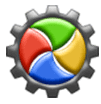
Advertising seems to be blocked by your browser.
The ads help us provide this software and web site to you for free.
Please support our project by allowing our site to show ads.
MEDIA - Animation Technologies Inc. - LifeView WDM TV Tuner Computer Driver Updates
| Driver Description |
 LifeView WDM TV Tuner
LifeView WDM TV Tuner |
| Driver Manufacturer |
Animation Technologies Inc. |
| Driver Type |
MEDIA |
| Driver Version |
3.25.0.1 |
| Driver Date |
9-20-2004 |
| Windows |
Windows XP (5.1) 32 bit |
| Driver Popularity | |
| Driver Description |
 LifeView WDM TV Tuner
LifeView WDM TV Tuner |
| Driver Manufacturer |
Animation Technologies Inc. |
| Driver Type |
MEDIA |
| Driver Version |
3.29.0.0 |
| Driver Date |
12-7-2004 |
| Windows |
Windows XP (5.1) 32 bit |
| Driver Popularity | |
| Driver Description |
 Video Wonder Pro III WDM TV Tuner
Video Wonder Pro III WDM TV Tuner |
| Driver Manufacturer |
Genius |
| Driver Type |
MEDIA |
| Driver Version |
3.25.0.80 |
| Driver Date |
9-20-2004 |
| Windows |
Windows XP (5.1) 32 bit |
| Driver Popularity | |
| Driver Description |
 LifeView WDM TV Tuner
LifeView WDM TV Tuner |
| Driver Manufacturer |
Animation Technologies Inc. |
| Driver Type |
MEDIA |
| Driver Version |
3.23.0.1 |
| Driver Date |
9-10-2004 |
| Windows |
Windows XP (5.1) 32 bit |
| Driver Popularity | |
| Driver Description |
 LifeView WDM TV Tuner
LifeView WDM TV Tuner |
| Driver Manufacturer |
Animation Technologies Inc. |
| Driver Type |
MEDIA |
| Driver Version |
3.25.0.1 |
| Driver Date |
9-20-2004 |
| Windows |
Windows 7 (6.1) 32 bit |
| Driver Popularity | |
Description extracted from Wikipedia:
Animate|other uses|Animate (disambiguation)date=January 2020
multiple image
| align = right
| direction = vertical
| width = 150
| image1 = Animexample3edit.png
| width1 = 150
| caption1 = The bouncing ball animation (below) consists of these six frames.
| image2 = Animexample.gif
| width2 = 85
| caption2 = This animation moves at 10 frames per second.
| footer_align = center
| height1 = 160
| height2 = 80
| total_width =
| alt1 = Weare
Animation is a method in which figures are manipulated to appear as moving images. In traditional animation, images are drawn or painted by hand on transparent celluloid sheets to be photographed and exhibited on film. Today, most animations are made with computer-generated imagery (CGI). Computer animation can be very detailed 3D animation, while 2D computer animation can be used for stylistic reasons, low bandwidth or faster real-time renderings. Other common animation methods apply a stop motion technique to two and three-dimensional objects like paper cutouts, puppets or clay figures.
Commonly the effect of animation is achieved by a rapid succession of sequential images that minimally differ from each other. The illusion-as in motion pictures in general-is thought to rely on the phi phenomenon and beta movement, but the exact causes are still uncertain.
Analog mechanical animation media that rely on the rapid display of sequential images include the phénakisticope, zoetrope, flip book, praxinoscope and film. Television and video are popular electronic animation media that originally were analog and now operate digitally. For display on the computer, techniques like animated GIF and Flash animation were developed.
Animation is more pervasive than many people realize. Apart from short films, feature films, television series, animated GIFs and other media dedicated to the display of moving images, animation is also prevalent in video games, motion graphics, user interfaces and visual effects.
The physical movement of image parts through simple mechanics-in for instance moving images in magic lantern shows-can also be considered animation. The mechanical manipulation of three-dimensional puppets and objects to emulate living beings has a very long history in automata. Electronic automata were popularized by Disney as animatronics.
Animators are artists who specialize in creating animation.
Worry no more! Download with DriverMax.
Get the perfect match for your driver
More than 5 million happy users



